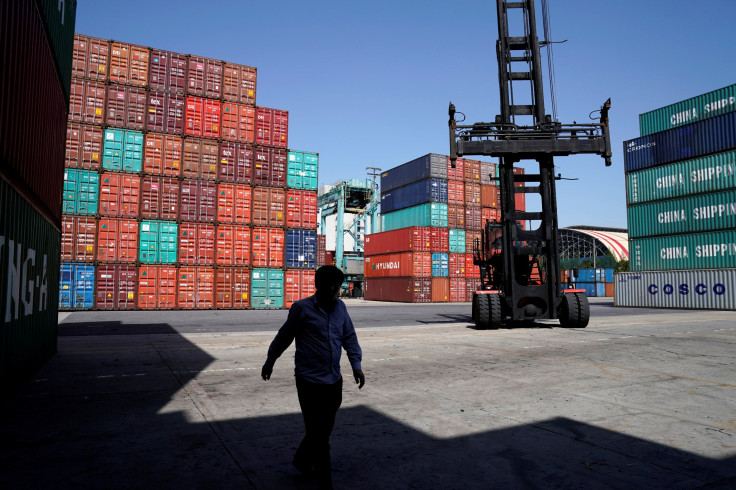Chinese Newspaper Mocks Trump's Claim Of Winning Trade War As 'Wishful Thinking'

SHANGHAI - Chinese state media kept up their criticism of U.S. President Donald Trump’s trade policies, with a newspaper on Tuesday describing as “wishful thinking” Trump’s belief that a fall in Chinese stocks was a sign of his winning the trade war.
As the world’s two biggest economies remained locked in a heated tariff dispute, Beijing and Washington have kept up a blistering rhetoric with threats and counter-threats of more punitive trade measures.
The editorial in the official China Daily underscored an increasingly aggressive stance adopted by Chinese state media against Trump, a shift from their previous approach of tempering any direct criticism against the U.S. president.
On Monday, the overseas edition of the Communist Party’s People’s Daily newspaper singled out Trump, saying he was starring in his own “street fighter-style deceitful drama of extortion and intimidation”.
China proposed retaliatory tariffs on $60 billion worth of U.S. goods ranging from liquefied natural gas (LNG) to some aircraft on Friday, following the Trump administration’s plan for a higher 25 percent tariff on $200 billion worth of Chinese imports.
The China Daily referred to a Saturday Tweet by Trump which said “Tariffs are working far better than anyone anticipated. China market has dropped 27 percent in last four months.”
China’s stock market was performing poorly before the U.S. administration imposed tariffs, said the English-language newspaper, asserting that the downturn was partly due to Beijing’s attempts to cut corporate debt.
The paper said Trump’s claim that “tariffs are working big time” was undermined by data showing the U.S. trade deficit climbed $3 billion to $46.3 billion in June, the first increase in four months.
The China Daily is often used by the government to communicate its message to an international audience.
Trump has repeatedly criticized China for its trade deficit with the United States, saying it showed Beijing was engaging in unfair trade practices.
Chinese state media has also been promoting the message that the country’s economy is strong enough to ride out the trade war.
In a separate commentary, in the People’s Daily overseas edition, a researcher at the Commerce Ministry reiterated this stance, saying China was strong and resilient enough to weather the trade dispute.
“We absolutely have reason to believe that during this complex trade friction, and relying on the domestic market, China can continue to enhance its leading position in the global economic and industrial system,” researcher Mei Xinyu wrote.
Despite the U.S. tariffs, a Reuters poll of economists forecast China’s exports to have grown in July, though many see a deteriorating outlook for shipments especially if Trump goes ahead with his threats to slap more punitive duties on Chinese imports
Recent data showed growth in the world’s second largest economy has already started to cool. The government has responded by releasing more liquidity into the banking system, encouraging lending and promising a more “active” fiscal policy.
Reuters
Reporting by Engen Tham; Additional reporting by Ben Blanchard in Beijing; Editing by Sam Holmes & Shri Navaratnam
© Copyright Thomson Reuters 2024. All rights reserved.





















